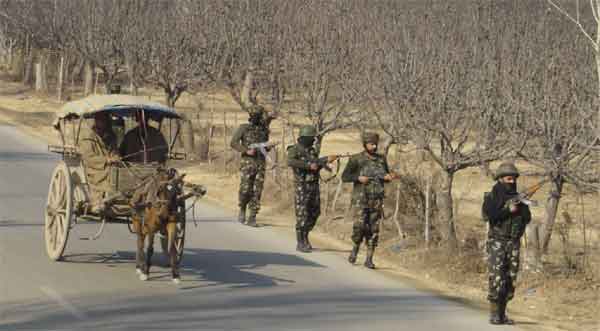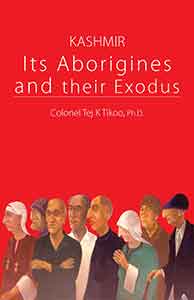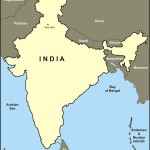The Article 370 was clearly meant to be a temporary provision included in the Constitution to cater for the specific requirements of the troubled times immediately after India’s independence and the state’s accession to India. It was meant to remain in operation during the existence of the State’s Constituent Assembly.
As time passed, the vested interests within Jammu and Kashmir and the compulsions of various political parties outside the state to appease their vote banks ensured its retention. No thought was spared by the votaries of ‘the retention of Article 370’ for the enormous potential this would have to wreak havoc on the unity and integrity of the country. It is the only state in India which has a constitution of its own.
As no outsider can settle in the state and own any property there, the politically well-connected people stand to gain enormously. It is these influential people who make the rules, decide the price and determine the buyer, since any competition from an outsider is completely ruled out.
To begin with, Article 370 has built emotional and psychological barriers between the people of Kashmir and the rest of India, thus fostering a psychology of separatism. Existence of this statute is used by Pakistan and its proxies in the valley to mock at the very concept of ‘India being one from Kashmir to Kanyakumari’. It has kept alive the two-nation theory. Over a period of time, the separatist lobby in the state has used this barrier to build a mindset of alienation. Such a possibility had been clearly visualised by many political stalwarts who comprised the Constituent Assembly of India. While speaking in the Constituent Assembly of India on October 17, 1949, one of its distinguished members, Hasrat Mohani had said, “The grant of special status would enable Kashmir to assume independence afterwards.”
The vested interests in Kashmir, be these politicians, bureaucracy, businessmen, judiciary, etc., have misused Article 370 for their own nefarious purposes, by exploiting the poor and the down-trodden people of the state. The rich have consistently used Article 370 to ensure that no financial legislation is introduced in the state, which would make them accountable for their loot of the state treasury. These include the provisions dealing with Gift Tax, Urban Land Ceiling Act, Wealth Tax, etc. This has ensured that the rich continue to grow richer and the common masses are denied their legitimate share of the economic pie. Article 370 has also helped create power elites and local Sultans, who wield enormous power, which they use to trample upon the genuine demands of common people for public welfare. As no outsider can settle in the state and own any property there, the politically well-connected people stand to gain enormously. It is these influential people who make the rules, decide the price and determine the buyer, since any competition from an outsider is completely ruled out.
This way, land resources are cornered by the rich and mighty, causing huge revenue losses to the state. These vested interests have gained much financial assistance from India which they have used to build separatist mindsets and secessionist lobbies with which they blackmail India.
To the gullible people of Kashmir, the abolition of Article 370 is projected as a catastrophic event that will sound the death knell of Kashmiri Muslim culture, but in actual fact, this argument is a ploy to prevent assimilation of Kashmiris into the national mainstream. That way, these power brokers continue to expand their fiefdom, perpetuate their hold on political and economic power and build a communal and obscurantist mindset, which in due course serves as a breeding ground for creating a separatist mentality.
…as no culture can survive without the stimulus of outside contact and opportunity to cross-fertilise. It was this mindset that has been responsible for creating the violent communal upsurge of 1989, which finally led to the exodus of Kashmiri Pandits.
The bogey of threat to the Kashmiri identity that the abolition of Article 370 will pose is merely a ploy to camouflage the political ambitions of the leaders. Actually these very people cause a great damage to Kashmiri culture, as no culture can survive without the stimulus of outside contact and opportunity to cross-fertilise. It was this mindset that has been responsible for creating the violent communal upsurge of 1989, which finally led to the exodus of Kashmiri Pandits.
One of the main reasons for the failure of the state administration to respond to the anguished cries of the Kashmiri Pandits to provide them with adequate security in 1998–90, was that the state administration had been completely subverted from within by the radical anti-national elements, who had infiltrated into the system over a period of time.
This infiltration had been made possible by the existence of Article 370. “Within the broad framework of the special status envisaged by Article 370, which isolated the state from rest of India, it was far easy for secessionist elements to infiltrate into the administrative cadres of the government.”12
One of the worst human tragedies the state faces is the denial of basic democratic and citizenship rights to nearly 600,000 refugees from Pakistan who entered the state at the time of partition or as a result of wars between India and Pakistan, thereafter. These refugees have made the state their home for the last over six decades, yet neither they nor their children can get citizenship rights in the state, as result of the applicability of Article 370. They can neither vote nor fight election; they cannot get loans from the state nor seek admissions into various professional colleges of the state.
…whereas, Article 370 provides all the political, economic and cultural and other safeguards to Kashmiris, the same provision is misused of by Kashmiris to deny the same safeguards to people of other regions of the state.
Article 370 has also been misused by political oligarchs to perpetuate their hold on power by preventing various democratic legislations from being applied to the state. Take the case of ‘anti-defection law’, which is a useful provision for preventing defections. This legislation vests the powers of deciding whether a legislator has defected or not, with the Speaker. However, in Jammu and Kashmir, the power has been vested with a party chief, thus turning the leader into a virtual dictator.
Article 370 has also been used to deny a fair share of economic pie to both Ladakh and Jammu region (see chapter 18). Violent agitations that rocked Ladakh in July-September 1989 were the result of the resentment felt by Ladakhis at being treated unfairly by Kashmiris Muslims, who have a stranglehold on political power in the state. It is ironic that whereas, Article 370 provides all the political, economic and cultural and other safeguards to Kashmiris, the same provision is misused of by Kashmiris to deny the same safeguards to people of other regions of the state.
The citizens of Jammu and Kashmir become citizens of India automatically; whereas the citizens of India have no such right when it comes to their claiming a similar right in the state. Consequently, the citizens of Jammu and Kashmir can own property and settle anywhere in India. On the other hand, Article 370 prevents any Indian from claiming any such right.
As early as 1932, Bertrand Glancy, Chairman of the Grievances Committee was compelled to write in his report: “The present definition of State Subject appears to be unduly rigid; domiciles in a state for a thousand years cannot, according to this definition, qualify a man. It would seem both unfair and inexpedient to deny the right to franchise to a man who has so far identified himself with local interests as to make his domicile in the state over a consecutive period of five years.”13
Dr BR Ambedkar had forewarned the country on this score in reply to Sheikh Abdullah’s demand for a special status in the Constituent Assembly of India. He had said, “You want India to defend Kashmir, give Kashmir equal rights over India, but you deny India and Indians all rights in Kashmir. I am Law Minister of India, I cannot be a party to such betrayal of national interests.”14
Notes
12. Dr MK Teng and CL Gadoo, n. 1, p. 16.
13. Jagmohan: My Frozen Turbulence in Kashmir; p. 249. After the communal disturbances of July 1931, the British appointed a one-man commission headed by Bertrand Glancy to probe the happenings and look into the grievances of the people and suggest remedial measures.
14. Hari Om, former head of Maharaja Gulab Singh Chair, Jammu University, in Pioneer… and Hum Hindustan Ke-Kashmir Hindustan Ka, (Muslim Rashtriya Manch, Asaf Ali Road, New Delhi).







Respected all
Its ok to look for the positive side but look for the negative effects. Kashmir had its own way to handle all things and they had never denied for trade so i don’t think that there was a real need to take this as a part of india. The peace treaty between india and pakistna was signed by UN and this might surely turn into war sooner. The decision hasn’t looked up for all the consequences of the decision.
BretZect http://paydayloanse.loan
Good Insights of valley.
Article should also give future course of this problem. Thanks.
Article 370 is titled as “Temporary provisions related to the State of Jammu & Kashmir”. Something which was temporary, transitional has become permanent. Nobody in the successive Union Governments nor the J&K State Governments thought it wise to integrate the troubled State fully into Republic of India ? Very very strange…. The present Government set up at the Centre and the State may become ‘catalyst of change’ to repeal this section, however, the forces which have enjoyed and built their empires, powerful lobbies would use their full might not to let this happen because they are deriving rich benefits from the present state of affairs.
Sincere, concerted, subtle efforts, requiring lots of patience of the Central Government are required to make the change really happen. Regular awareness campaigns in the media should be initiated with immediate effect, youth of the State should be involved in the exercise and then gradually and firmly circumstances created should be assessed. People’s participation in the entire exercise will be the core to the long lasting success of the objective. Parallel to all this Central Government has to overlook certain issues of local rhetoric and maintain development oriented plans, processes. Development and visible development will restore the ‘Confidence’ of local people in New Delhi, which will translate into building ‘Trust’ between communities, Government of Jammu & Kashmir & Government of India.
A decisive leader like Sh. Narendra Modi can really make this long pending change a reality.
Best wishes,
Rajkaran Singh Bhatti
The sooner the country does away with this outdated article the better it is for the nation and specially the state J&K.
And no justification of reservation based on caste/religion of any kind.
There is no justification to continue with 370,govt. should do away with this act as soon as possible.
It seems that Col is mostly in favor of repealing Article 360 because of his religious commitment to India. We Kashmir Hindus will never allow any one to Scrap Article 360 as it maintains the highness of Constitution of J&K.
The black Propaganda by Kashmirs Pundits that Kashmirs are alienated from rest of India is totally False. We are very much happy and satisfied.
According to Constitution Jk J&K -to repeal Article 360 means separation of Kashmir from Union India.
Col get your homework done.
Art 360????
Only one word-Ass
Because of Article 370, Kashmiri’s have always felt alienated from the rest of the country. They have always felt that they belong to a different political idiom which has nothing to do with India. This fallacy is incorrect and needs mediation at the political level of both India and it’s integral State of Jammu and Kashmir (J & K). Now that the new government is likely to assume office in the next few days, it is hoped that this discrimination in perpetuity will be resolved to the mutual satisfaction of both India and it’s integral State of J & K.
The book by Col Tikoo is a well researched document,a referal for any further research.This article 370 though temporary has been the most misused one to armtwist the mainland policy makers.Development as a whole is stalled, resulting in a lot of corruption of all types in the state.The time to educate and teach has passed,now concrete actions should follow.
We should get rid of Article 370 at the shortest possible time to safe guard our national interest. It is creating more problems rather than giving any satisfactory result.
Very informative and each and every word is straight from the heart of the author.
It appears, Sheikh Abdullah had the same regard in Kashmir, as Nehru had in India. Today, every state has leaders, more popular than the Prime Minister in the Union Govt. Nehru was a leader not supposed to be a Kashmiri icon. He was important, but not because he was a Kashmiri. He did feel, that Sheikh Abdullah was very important to Kashmir, and he did take measures. The unfortunate thing is, that a social icon becomes a political icon, and Nehru is embodiment of that. What if Nehru and Mr. Abdullah had not been politicians? Both leaders would have really become very relevant to the larger understanding. I do think, that Mr. Omar Abdullah is a strong young leader, but I also really admired Mr. Mufti Mohammed Sayeed. If govt. is important, then there are people who can make a difference in govt. The unfortunate fact is, govt. makes people want to feel dissatisfied, in a democracy. Democracy must change for the better.
Col Tikoo paints a grim picture for India no matter which way we slice the Kashmir issue. Article 370 is a dagger aimed at the heart of a democratic nation of 1.2 billion Hindus, Muslims, Christians, Siks and others. In retrospect, it is hard to imagine any rationale or justification for taking a part of India and assigning, in perpetuity, means for undoing the unity of the nation. Political expediency, lack of strategic view of the unfolding environemt, appeasing a small minority whose allegiance had been in question all along, were factors singularly or combined to explain what may have gone through the minds of the Indian Congress leaders at the time of partition. The result today is a time-bomb ticking away which can reverberate devastatingly through the rest of India if ignited. The smartest and the brightest need to rise to undo the harm. The following are some thoughts on this: First, open a public dialogue to inform, educate and consul the population that this is a national matter, and not an issue dealing with a small corner effectiing a minority population. Second, make a case based on national security of India to do away with article 370. Third, present policies and programs to provide benefits, political freedom and rights to the citizens of Kashmir same as any other Indian state. If a minority resists to such a change they should be allowed to contest their positions in the Indian courts of law same as any other state. If after the courts have spoken, the extremist accepting the verdict, the Indian law enforcement agencies should plan to enforce the laws of the nation. It is only India, that must decide what is required to maintain the defence and integrity of India.